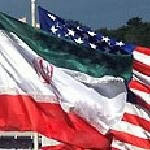Analysis of a report
What are the positive and negative points of NIE report and how should we deal with it

National Intelligence Estimate has released its biennialreport in 132 pages. Nine pages of this report concern Iran and have been handedto the White House, Congress, National Security Council and other governmentinstitutions.
The declassified content that concerns Iran is only in 3pages that include some key points which we will discuss here briefly. Theimportant thing is to find likely answers to some questions. What does thisreport say? Why has it been released just 3 weeks before UN Security Council’smeeting on Iran’s nuclear issue? What is our judgment on this report? And howshould we treat it?
NIE is a group of 16 intelligence agencies and itsdirector –currently AdmiralMcConnell- is appointed by USpresident. According to its constitution, the organization is due to report itslatest findings on domestic and foreign issues to the President, Congress andSenate, and government policymakers. This report doesn’t only do with analysesof the United States’ intelligence services but also exploits full capacity ofvarious military, academic, and research institutions. It is presented in formof a draft to senior officials for assessment and after taking their commentsand opinions into account, the final report is delivered to theofficials.
Information are classified and later delivered to decisionmakers and no strategies or policies are set out by this organization. Thereport has legal, political, intelligence and propagandistic aspects usingtentative methodology and unique terminology of low, medium and high confidencefor key judgment.
The aim of this report was to assess the current status ofIran’s nuclear program, its objectives, effectiveness of internal and externalfactors, and elements that effect continuing and halting plans to developnuclear weapons.
The report explicitly indicates that strategic objectivesof the political system have not changed since the former supreme leader of theIslamic Revolution, Ayatollah Khomeini, has passed away.
Definitely the key judgment of this report is that Iranhas halted its military nuclear program since fall 2003 because of increasinglyinternational pressures. According to the report, by Iran’s nuclear program
NIErefers to all nuclear activities including military covert program and uraniumenrichment, not the officially declared plans of Iran.
It has also been estimated that Iran has imported a volumeof fissionable material for military purposes before 2003 but it hasn’t been atthe level to obtain nuclear weapon.
The next point is lack of adequate information on how Irantends to halt its military nuclear plan in the future, clear emphasis onexistence of military plan before 2003, and also uncertainty about thefuture.
Positive Points of theReport
1. Reduction of the possibility of military conflict between Iran and the United States;
2. Positioning the pro-war front in a undesirable situation;
3. Widening the gap between conservatives, neo-conservatives and democrats on Iran’s nuclear issue;
4. Widening the gap between presidential candidates on Iran’s nuclear program;
5. Convincing public opinion in the United States and West to oppose the measures of American policymakers on Iran’s nuclear program;
6. American think-tanks rethinking on Iran’s nuclear issue;
7. Widening the gap inside the international community;
8. Reduction of the likeliness of new sanctions against Iran in the upcoming resolution of UN Security Council;
Negative Points of theReport
1. Reemphasizing Iran’s intention to develop nuclear bomb before 2003;
2. Iran’s intention to attain military nuclear technology;
3. Accounting limitations for Iran’s nuclear technology;
4. Stressing international pressure on Iran to change its behavior;
5. Stressing halt of uranium enrichment and fuel cycle;
6. Judging Iran’s program as military before 2003;
7. Difference of the nature of this report with IAEA report. The latter has confirmed Iran’s clear non-deviated past while NIE has rejected this reports;
8. On Iran’s nuclear program, Mr. El Baradei supports objective guarantees along with suspension and emphasizes further cooperation with Iran, while NIE claims that future is more dangerous since Iran has pursued nuclear plans previously;
9. The report focuses on uranium enrichment, militarization of the nuclear program and ballistic missiles;
10.Judgement on the possibility of importing fissionable material;
11.Stressing that Iran will attain full military nuclear technology in 2013 or 2010-2015.
The important thing is claiming that the report is notbased on facts but on information which have been gathered from differentsources up to now. It is possible that new judgments will be presented withaccess to new information.
History of American diplomacy shows that such reports donot necessarily mean new policies. Rice has rejected this report and there’sserious contradiction between the report and United States implemented policies. In fact, although this report contains various positive and negative points, itchallenges the foundations of America and European countries’ policy. Especiallypressures on Bush and Cheney will increase after this report.
Nowadays the Israeli lobby in US tries to poison thecurrent atmosphere against Iran. Ulmert’s claim that the basis of Israel’sintelligence community is against that of America confirms this issue.
Therefore, methodologically speaking about successive newsor single news, sphere, quality and source of information are important.
The United States’ illegitimate pressures after 2003 aimedto send Iran’s case to Security Council can be legally investigated andchallenged. Why has Iran’s nuclear case been sent to Security Council based onunreliable data and under international pressures?
What should be now important for Islamic Republic of Iranis its success in presenting a compelling logic for its policy, proving thenon-existence of any military agenda in its nuclear program, and accomplishmentin initiatives, clarifications and even cooperation on Additional Protocol, dueto Iranians’ resistance and cooperation with international agencies. Anyachievement in foreign diplomacy belongs to the entire nation and all politicaland intellectual groups, but the important thing is being cognizant about thereport and avoiding hasty official responses.
Currently development of new approaches and cooperationwith IAEA, unconditional negotiations with EU, 5+1, and countries of the regioncan help us in achieving sustained agreements.
Now it’s a responsibility of the Islamic Republic to warnabout nuclear arsenal of Israel, Pakistan and India and demand a non-nuclearMiddle East through regional and international cooperation. That’s how securityin the region will be established.

